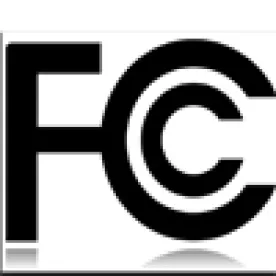Legislative Activity
House Passes Amateur Radio Parity Act
On September 12, the US House of Representatives passed H.R.1301, the Amateur Radio Parity Act of 2016. The bill, previously discussed here and here, would require the Federal Communications Commission (FCC) to adopt rules that would protect amateur radio operators from the reach of community association rules, architectural standards, and other private land use restrictions that can interfere with the installation and operation of amateur radio towers and antennas. Specifically, the bill requires the FCC to amend Section 97.15(b) of its rules to prohibit the application of any such restriction to amateur radio stations if the restriction (1) would preclude amateur radio service communications; (2) would fail to reasonably accommodate amateur radio service communications; or (3) does not constitute the “minimum practicable restriction” on such communications to accomplish the lawful purpose of the private entity seeking to enforce such a restriction. The bill now goes to the Senate for consideration.
Bill Protecting Municipal Broadband Introduced in House
On September 13, Rep. Anna Eshoo (D-CA) introduced H.R.6013, the Community Broadband Act of 2016. The bill would amend the Communications Act to preserve and protect the ability of local governments to provide broadband services. Specifically, the bill would prevent the states from passing laws that would prohibit cities and municipalities from providing “advanced telecommunications capability” such as broadband “to any person or any public or private entity.” The bill follows the August 2016 ruling of the US Court of Appeals for the Sixth Circuit, which struck down the FCC’s March 2015 Memorandum Opinion and Order preempting state laws in North Carolina and Tennessee that prevented municipal broadband providers from expanding into nearby areas. The bill has been referred to the House Energy and Commerce Committee (House Commerce Committee) for consideration.
This Week’s Hearings:
-
Thursday, September 22: The Communications and Technology Subcommittee of the House Commerce Committee will hold a hearing entitled “Modernizing the Telephone Consumer Protection Act.” Witnesses have not yet been announced.
Regulatory Activity
FCC Issues $11 Million in Total Fines to Three Long Distance Carriers for Cramming, Slamming, Deceptive Marketing, and Truth-In-Billing Violations
The FCC on September 15 announced $11 million in total fines to three long distance carriers for “‘cramming’ unauthorized charges onto consumer telephone bills, ‘slamming’ consumers by switching their preferred phone carriers without authorization, deceptive marketing, and violating the FCC’s truth-in-billing rules.” The FCC claims the companies—Central Telecom Long Distance, Inc., Consumer Telcom, Inc., and U.S. Telecom Long Distance, Inc.— are “run as one operation by Data Integration Systems, Inc.” According to the News Release, “the companies’ telemarketers falsely claimed that they were calling on behalf of consumers’ real telephone carriers about a change in existing service,” and the companies then “misused consumers’ answers to switch their long distance carriers to one of the companies. When customers realized what had occurred and returned to their preferred carriers, these companies continued to charge consumers a recurring monthly fee” and also “failed to clearly and plainly describe the charges included in their customer bills, as required by the FCC’s rules.”
FCC to Host Info Session on Communications Technology Transitions
On Monday, September 26, the FCC’s Consumer and Governmental Affairs Bureau (CGB) will host an information session on “Technology Transitions,” according to an FCC Public Notice. Telephone companies are replacing existing copper telephone lines with fiber or wireless networks that use Internet Protocol (IP) technology. The information session will “inform consumers about how the switch from copper networks to new technologies will affect them,” and will include presentations from FCC staff on three main topics: “What are technology transitions?”; “What do technology transitions mean for me if I have a disability?”; and “After a technology transition, how do I make sure that I can make an emergency call during a power outage?”, as well as a Q&A session. The information session is open to the public and will take place from 1-2 p.m. in the Commission Meeting Room of the FCC’s headquarters at 445 12th Street, SW, and will be streamed live at fcc.gov/live. In-person attendees are encouraged to send an RSVP email to techtransitionsinfo@fcc.gov.





 />i
/>i

